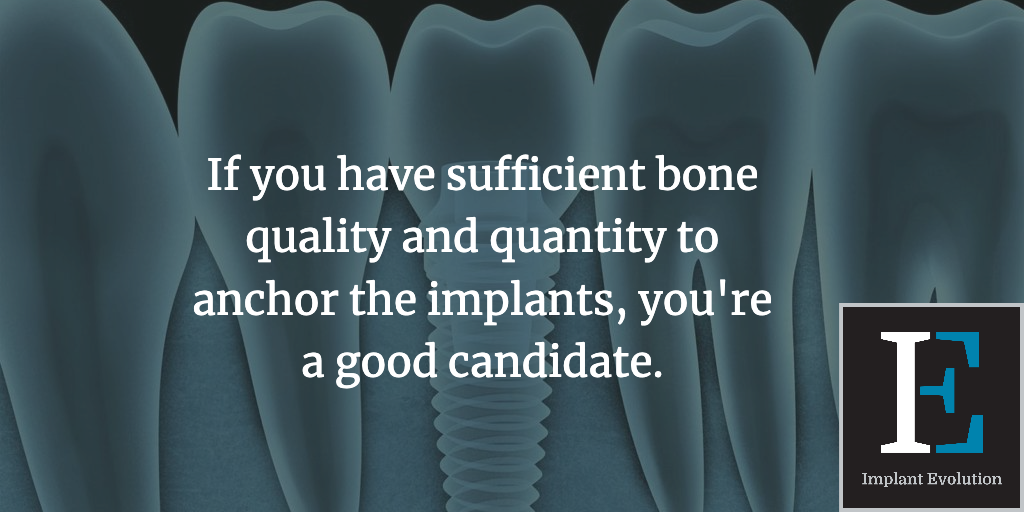When you’re a child, it’s not a big deal to lose a tooth. However, it is a different story for adults who lose their teeth. But with the advances we have made over the years in dental technology, we’ve come a long way to perfecting replacement teeth both individual and even groups of teeth. This means that you can get a new tooth that appears & can even feel natural.
Who Can Get Dental Implants?
Thankfully for those who have lost an adult tooth, the simple answer is that most people are good candidates for dental implants, which can replace one or more natural teeth. Generally speaking, you’re a good candidate if you have sufficient bone quality and quantity to anchor the implants.

Sometimes dental implants are recommended to prevent further bone loss. In those cases, bone grafting can help build up the area and prevent an implant from failing.
How Can You Find Out If You’re A Candidate?
Initial diagnosis and focused surgical planning is necessary to maximize the chance of a good outcome. Your dental implant surgeon can be expected to use cone beam or CBCT 3-D imaging to observe all anatomical structures, including nerves, arteries, bones, and muscles.
These 3-D x rays technologies help create the safest possible implant procedure(s) and the best possible outcome for the patient.
If you are considering dental implants, your implant dentist must evaluate your teeth, jaws, gums, and overall oral health. All of these structures can play a significant role in how well your implant(s) heal and integrate to the bone.
What Health Conditions Conditions Prevent Dental Implants?
Underlying health conditions such as uncontrolled diabetes, gum disease, or certain bis-phosphate medications can significantly lower the chances of success in implant cases.
Another behavior that leads to implant failures is smoking, which can significantly hinder implant healing due to vasoconstriction, which limits blood flow to the implant site itself.
If you’re not a smoker, and don’t have those health conditions then chances are that you’re actually a strong candidate for a dental implant.

Even if you don’t present as a good candidate, a bone grafting procedure or other treatment may soon get you to a place where you can get implants.
